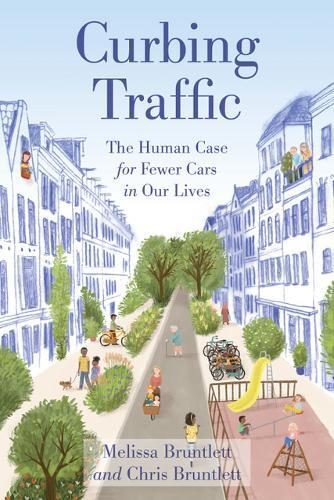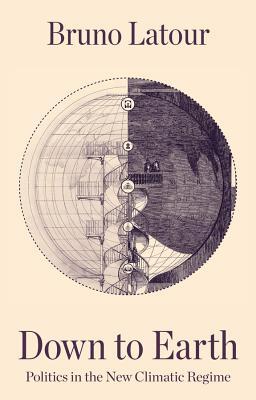Jeremy Williams's Blog, page 77
November 15, 2021
Book review: We are the weather, by Jonathan Safran Foer

We Are the Weather is an unusual book on several different fronts. It’s a book about climate change that is actually about lots of other things. Or maybe it’s a book about lots of other things – family, grief, responsibility, food – that is actually about the climate. Either way, it’s in a climate book sub-genre of one.
The book begins with an analysis of why climate change has been so hard to address, explored through what look like unrelated stories – family anecdotes, strange news art...
November 13, 2021
What we learned this week
Other places are offering a round-up of COP26, and I will offer some considered opinions later. So business as usual on my own weekend collection of miscellaneous links.
It was great to see some attention on the Great Green Wall at COP26, a project I’ve had an eye on for a decade now. The UN put $143 million behind land restoration and reforestation in the Sahel. Jeff Bezos also added a billion to what I think is one of the most ambitious environmental projects ever attempted.
Last year I...
November 12, 2021
What are the realistic prospects for hydrogen?
Over the last few weeks I’ve looked at some of the possibilities for hydrogen in the new economy, and some of the problems too. I’ll come back to the topic from time to time, but to sum up, it’s worth asking how likely all these various applications actually are. Yes, it’s possible that we’ll have hydrogen heating. Hydrogen planes are theoretically possible, eventually.
There’s a lot of theory and potential in hydrogen, and not so many visible examples. Earlier hype hasn’t delivered. Predict...
November 11, 2021
Learning from the Happy Planet Index
Critiques of GDP as a measure of progress are as old as GDP itself. Its originator, Simon Kuznets, was among the most vocal critics of those who used his index in that way. Despite decades of inadequacy, no replacement has yet been found, and economic growth remains the one number to rule them all. Personally, I think the quest to find a single alternative metric is a dead end: life is not so simple that it can be reduced to a single number, and progress lies in a variety of measures.
However...
November 10, 2021
Book review: Curbing Traffic, by Melissa Bruntlett and Chris Bruntlett

I post one book review a week and had this one scheduled for later. But it’s transport day at COP26 today, and I decided I’d bring it forwards.
Certainly in British government circles, the most prominent sustainable transport ‘solution’ is electric cars. And while I am all in favour and drive one myself, electric cars are not where you start. You start with active transport (walking and cycling) and public transport. This book will tell you why.
Curbing Traffic: The human case for few...
November 9, 2021
COP26 and the paradox of last chances
It’s been a popular refrain in the run-up to the Glasgow climate talks: this is the last chance to prevent catastrophic climate change. Boris Johnson told his audience it was “one minute to midnight”. John Kerry says it’s our “last best hope.” My personal favourite is Prince Charles, who said “literally, it is the last chance saloon” – though I went to Glasgow and can confidently report that COP26 is not literally a saloon of any kind.
It’s not just older white men using this language either....
November 8, 2021
Book review: Down to Earth, by Bruno Latour

When I rebranded the blog a couple of years ago, I thought long and hard about different names and settled eventually on Earthbound. For me it reflects the fact that we are grounded where are and have to learn to live as if we mean to stay. It also hints at the earth as a destination. As if modern life, with its infinite growth and its plastic, were a fantasy detour and we needed to come back to earth.
The French philosopher Bruno Latour has also used the idea of being earthbound, and so ...
November 6, 2021
What we learned this week
Every year there is a rush of reports, books, projects, campaigns and announcements all timed for what is basically ‘climate season’. This year feels particularly crowded, perhaps because the climate talks are more local, perhaps because more people are piling on the PR bandwagon. I’m going to save a bunch of things to talk about afterwards, otherwise everything happens and once and everyone will forget about climate change until february.
In their annual number-crunch, Carbon Brief find tha...
November 5, 2021
Why emissions cuts start with the richest
In order to limit global warming to 1.5 degrees C, global carbon emissions need to be dramatically reduced. And it is the richest who need to reduce them the furthest.
This is well illustrated by a new briefing released by Oxfam today.
In the graph below, which I have simplified slightly from their report, we see the consumption emissions of global income groups – the richest 1% and 10%, the 40% in the middle, and the poorest 50%.

The carbon emissions of the world’s wealthiest pe...
November 4, 2021
Can hydrogen displace oil?
In my series on hydrogen, I have covered a variety of different possibilities so far. There’s no question that it could play a major role in decarbonising the economy, especially in some trickier sectors. But there’s one nagging question that ought to be asked whenever people start talking about energy revolutions: will it actually make a difference?
To be more specific, we have to ask if hydrogen will displace fossil fuels. As hydrogen use rises, will consumption of oil, gas and coal fall? ...



